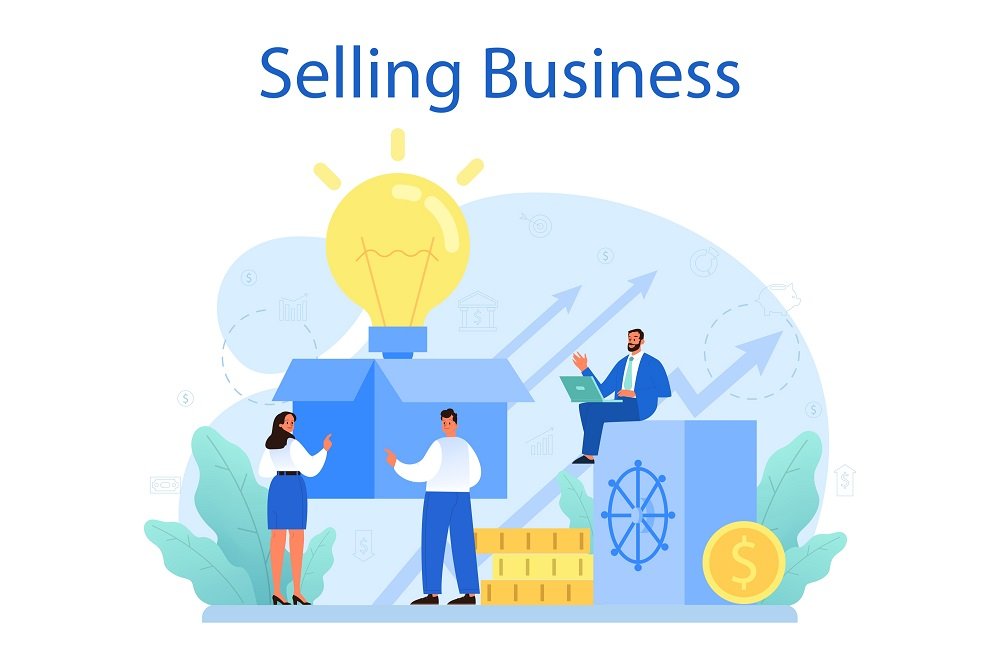Canada has had a lot of opportunities in the business environment, and the process of selling or acquiring a business is not easy. One has to do more than simply identify a willing party; it takes a combination of financial savvy, legal expertise and foresight. It is an in-depth guide to the most important steps to a successful transaction, and an outline of how a potential buyer and a seller should navigate the Canadian market.
Part I: The Art of Buying a Business in Canada
For a prospective buyer, an existing business offers a shortcut to market entry. It provides an established brand, a customer base, and a proven revenue stream. However, a successful acquisition requires a methodical approach that goes beyond the surface.
1. Strategic Planning and Self-Assessment
Before you begin the search, it’s crucial to define your “why.” What are your long-term goals? Are you seeking a lifestyle business, a high-growth startup, or a strategic acquisition to expand your existing portfolio?
- Financial Capacity: Do not be overly ambitious (budget). Include not only the actual cost of the purchase, but also legal cost, valuation, and working capital, as well as post-acquisition cost.
- Skill and Experience: Find what kind of business fits your professional experience and operation expertise. Acquisition is a much lower risk in a familiar area.
- Geographic and Market Focus: Decide where and what industry you are going to. The value of a business and its potential may be severely affected by the local market conditions, competition, and regulatory environment.
2. Mastering the Due Diligence Process
Due diligence is your deep dive into the business’s health. It is a non-negotiable step to verify the seller’s claims and uncover potential red flags. A comprehensive due diligence process involves several layers:
- Financial Due Diligence: Go beyond the glossy summary. An accountant should review normalized financial statements, which adjust for non-recurring expenses and owner’s discretionary spending. Look for consistent cash flow, stable revenue trends, and a healthy balance sheet.
- Legal and Corporate Due Diligence: A lawyer will review all legal documents, including corporate records, licenses, permits, supplier and customer contracts, and any pending litigation. This ensures there are no hidden legal liabilities.
- Operational Due Diligence: Assess the operational side of the business. Is the business reliant on the current owner? Are key employees and systems well-documented? Are there any intellectual property assets (patents, trademarks) that are critical to the business’s value?
- Market and Customer Due Diligence: Understand the business’s market position. Talk to key customers and suppliers to gauge relationships and identify any concentration risks.
Your Business Journey Deserves Expert Guidance
3. Securing the Right Financing
The Canadian financial landscape offers several avenues for funding a business acquisition.
- Traditional Bank Financing: Major banks offer term loans for business purchases. They will typically require a strong business plan, collateral, and a significant down payment from the buyer.
- Seller Financing: A common practice in Canada, where the seller agrees to finance a portion of the purchase price. This shows the seller’s confidence in the business and can be a win-win for both parties.
- Government-Backed Programs: The Canada Small Business Financing Program (CSBFP) is a great resource. It helps small businesses secure loans from financial institutions by sharing the risk, making it easier to finance the purchase.

Part II: The Strategic Sale of a Business in Canada
For a business owner, a sale represents the culmination of years of hard work. To maximize the sale price and ensure a smooth transition, a strategic and proactive approach is essential.
1. Preparation: The Key to Maximizing Value
A rushed sale is a bad sale. Start preparing for your exit several years in advance.
- Financial Housekeeping: Ensure your financial records are meticulously organized and accurate. Clean up any personal expenses that have been run through the business. Having normalized, verifiable financials is the single most important factor for a strong valuation.
- Efficiency: Map out all major processes and procedures. Install a management team that is strong enough to operate the business without you being involved in its day-to-day running. A business is much more appealing to a buyer when it does not rely on the owner.
- Value Enhancement: Pay attention to strategies that make the business more attractive. This might entail diversifying the customer base, long-term contracts, better technology, or making the operations leaner to enhance profitability.
2. The Valuation Process
A professional valuation is crucial. It provides an objective, defensible basis for your asking price and gives you a strong position in negotiations. Common valuation methods in Canada include:
- Income-Based Approach: This is often the most relevant method for profitable businesses. It values the business based on its ability to generate future income.
- Market-Based Approach: This method compares your business to similar companies that have recently been sold in your industry.
- Asset-Based Approach: This is best for asset-heavy businesses or those that are not profitable. It values the business based on the value of its tangible and intangible assets.
3. The Negotiation and Deal Structure
Negotiation is about more than just the price. It’s about the entire deal structure.
- Confidentiality: Use a Non-Disclosure Agreement (NDA) with serious buyers to protect sensitive business information.
- Deal Structure: Your lawyer and accountant can help you select the most tax efficient structure. Buyers often prefer an asset sale (where a buyer purchases certain assets) which limits liability. A share sale (the buyer purchasing the corporation shares) can be more appealing to the seller because it may offer tax incentives such as the Lifetime Capital Gains Exemption (LCGE).
- The Purchase Agreement: It is the last legal document. It will specify the price of purchase, mode of payment, a list of assets and liabilities transferred, and representations and warranties (legal commitments by the seller to the status of the business).
A Comparative Table: Buyer vs. Seller Perspective
| Aspect | Buyer’s Perspective | Seller’s Perspective |
| Objective | To acquire a profitable business at a fair price with minimal risk. | To sell the business for maximum value and a smooth exit. |
| Due Diligence | A critical process to verify financials and uncover hidden risks. | A necessary process to demonstrate transparency and justify the asking price. |
| Valuation | A tool to determine a fair market value and guide the offer. | The foundation for the asking price, supported by a professional report. |
| Financing | Exploring various options (bank, seller, government) to fund the deal. | Considering seller financing to make the deal more attractive and secure. |
| Deal Structure | Often prefers an asset sale to limit future liability. | Often prefers a share sale to take advantage of tax exemptions. |
| Advisory Team | Relies on legal and financial advisors to protect their investment. | Relies on a business broker, lawyer, and accountant to manage the process and maximize value. |
Frequently Asked Questions (FAQs)
Q1: What is due diligence?
A: Due diligence is a thorough investigation a buyer performs on a business to verify its financial health, legal standing, and operational viability before finalizing a purchase.
Q2: What is the difference between an asset and a share sale?
A: An asset sale involves a buyer purchasing specific assets of a business. A share sale involves a buyer purchasing the entire legal entity, including all its assets and liabilities.
Q3: Can I sell my business without a broker?
A: Yes, but a business broker provides valuable expertise in valuation, confidential marketing, and negotiation, which often leads to a higher sale price and a more efficient process.
Q4: What is a Letter of Intent (LOI)?
A: An LOI is a non-binding document outlining the key terms of a proposed deal. It signals serious intent and sets the framework for the formal purchase agreement.
Q5: What are representations and warranties?
A: These are legal statements of fact and promises a seller makes about the business’s condition in the purchase agreement. If proven false, they can provide a basis for the buyer to seek a remedy after the sale.



